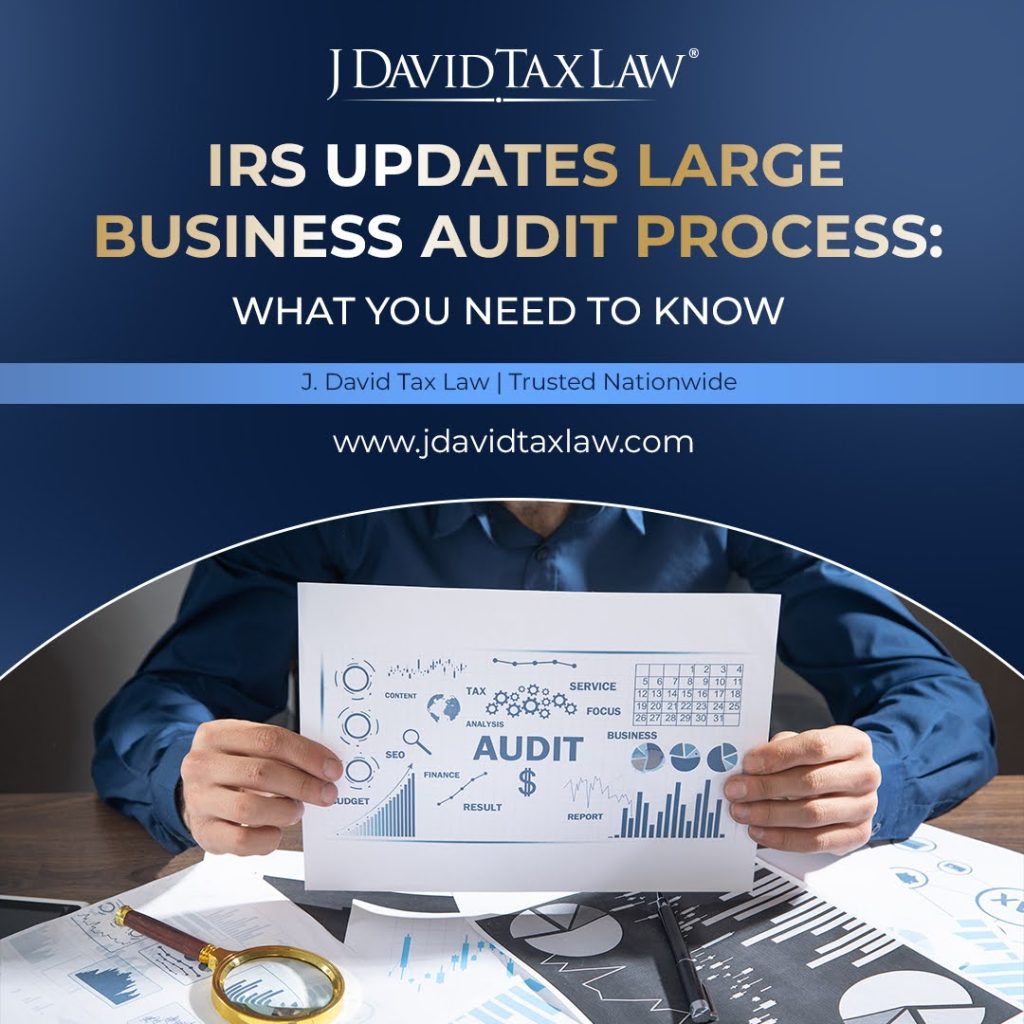The straightforward answer is: Not always, but often yes. For simple cases (under $50k, no fraud, comfortable with DIY), you might not. For complex issues ($100k+ owed, business owner, audit, fraud, IRS Revenue Officer), a tax attorney is highly recommended to protect your assets and secure better outcomes.
This comprehensive guide will help you understand when you can handle your tax issues independently and when hiring a tax attorney is your best course of action.
Understanding Your IRS Tax Problem
Owing back taxes can be a heavy burden. Many Americans face tax debt due to life’s complexities, often avoiding IRS contact. While daunting, solutions exist; ignoring the problem only escalates IRS collection efforts. The crucial first step is to engage and find a resolution.
The key question is: can you navigate the IRS alone, or do you need professional help? While managing IRS programs and negotiations yourself is possible, the system is complex, and communication can be time-consuming and frustrating.
When You Might NOT Need a Tax Attorney (Simple Cases)
For many, tackling IRS tax problems without an attorney is viable if your situation is straightforward:
You owe less than $5,000 to the IRS.
You are not self-employed or a small business owner.
There are no signs of unreported income or tax fraud.
An IRS Revenue Officer is not yet involved.
You are comfortable communicating directly with the IRS.
You are willing to invest time in learning the forms and processes yourself.
If these points describe your situation, a do-it-yourself (DIY) approach might save you money, though it will require significant time and effort. Many tax problems can be resolved without an attorney if you’re motivated to learn.
When You SHOULD Hire A Tax Attorney (More Complicated Cases)
As tax situations become more complex, the benefits of hiring a tax attorney significantly increase. You probably need an attorney if any of the following apply:
You owe more than $5,000 to the IRS.
An IRS Revenue Officer is assigned to your case.
You are self-employed or own a small business.
You have a complicated or unusual financial situation.
You feel intimidated by the IRS and prefer professional representation.
You want to save yourself the time and stress of handling it alone.
More intricate cases receive greater IRS scrutiny. A skilled tax attorney can prepare financial documents and handle negotiations, often leading to a much better outcome, like a successful Offer in Compromise or a more favorable settlement. Explore various tax debt solutions that an attorney can help you navigate.
When You MUST Hire a Tax Attorney (Danger Zone)
Certain tax situations are so severe that legal counsel is not just recommended, but absolutely essential. You must hire a tax attorney if any of these apply:
You have unreported income or other indications of tax fraud, potentially leading to IRS Criminal Investigations.
You have undisclosed foreign bank accounts.
You owe more than $1,000,000 to the IRS.
You have valuable assets you wish to protect from IRS Asset Seizure threats.
If any of these describe your situation, you are in the “danger zone.” Without proper legal representation, you could face severe consequences, including forced asset sales, business closures, or even criminal tax prosecution. Seek immediate consultation with a qualified tax professional to protect your assets and future. This is where specialized tax services become critical, especially for tax litigation.
What Do Tax Attorneys Do? Their Role and Expertise
A tax attorney is a legal professional with a deep understanding of federal and state tax laws. Graduates of law school, licensed to practice, serve as your legal representative and mediator with the IRS. Their expertise covers a wide range of tax-related legal issues:
Audit Representation: For complex audits, particularly those hinting at tax fraud, an attorney can build your defense and represent you.
Criminal Defense: Facing tax fraud allegations or criminal tax charges? A tax law firm is crucial to build your case and represent you in tax court.
Delinquent Tax Returns: They help file unpaid taxes, navigating penalties and seeking solutions.
Installment Agreements: If you can’t pay your tax debt in one go, they set up an IRS Payment Plan to manage liabilities.
Offers in Compromise (OIC): If you truly cannot pay your full tax debt, an attorney negotiates an Offer In Compromise with the IRS on your behalf.
Penalty Abatement: Attorneys determine if you qualify for penalty & interest relief, including First Time Penalty Abatement.
Collection Actions: If the IRS has initiated actions like tax levy, tax lien, or wage garnishment, an attorney can work for their release or removal. These are part of managing IRS enforcement actions.
Case Research: They investigate IRS cases to identify problems and determine effective solutions.
Communication: By signing Form 2848, you authorize a tax lawyer to represent you, taking the burden of direct IRS communication off your shoulders.
Negotiate Tax Settlements: They are skilled in negotiating complex resolutions under various tax debt solutions.
Tax Court Representation: For serious cases like tax evasion, an attorney provides the best odds for a favorable outcome in court.
How a Tax Attorney Can Help You Negotiate with the IRS
Having a tax attorney as your legal advocate can be immensely beneficial, especially with complex tax issues or substantial tax debt. The IRS is well-versed in tax law, but the average taxpayer is not. The IRS must cease direct communication with taxpayers who opt to consult with a tax attorney, CPA, or enrolled agent (per Internal Revenue Code Section 7421(b)(2)), protecting your rights.
A tax attorney provides several strategic advantages during negotiations:
Financial Assessment: They analyze your finances to determine eligibility for programs like an Offer In Compromise or Currently Not Collectible status.
Information Management: Your attorney identifies and gathers only relevant information and documents, avoiding unnecessary disclosures.
Offer Presentation: Tax lawyers know effective ways to present settlement offers and program acceptance requests, maximizing success chances.
Legal Arguments: They can highlight specific regulations or court cases that support your position.
Negotiation Tactics: Experienced attorneys know how and when to communicate with the IRS to achieve a more favorable outcome. This expertise is crucial in IRS Debt Negotiation.
Before representation, you must file IRS Form 2848, Power of Attorney and Declaration of Representative. This grants your attorney legal authority to receive tax information and represent you, but you remain accountable for your tax situation.
While an attorney doesn’t guarantee a better outcome, their deep understanding of tax law and negotiation dramatically improves your chances. They can help determine eligibility for programs like penalty & interest relief or the Fresh Start Program. They can also assist with amended returns, innocent spouse relief, or cessation of collection efforts if the statute of limitations has passed. An attorney can also help avoid IRS asset seizure by addressing notices, negotiating settlements, or filing IRS Appeals. When facing a tax audit, an attorney clarifies the process and guides you on information requests, assisting with IRS Payment Plan requests if your financial situation changes.
Pros and Cons of Working with a Tax Lawyer
Weighing the advantages and disadvantages is wise before hiring a tax firm. Overall, a tax lawyer will likely be a net positive, especially for disputes, appeals, or criminal charges.
A. Tax Attorney Pros:
Resolve Complex Tax Issues: For serious problems like wage garnishment, tax lien and tax levy issues, or tax fraud, a tax professional can save thousands and potentially prevent jail time. They specialize in high-level tax problems and ensure favorable outcomes, leveraging IRS enforcement actions expertise.
Save Taxpayers Pennies on the Dollar: For those who cannot pay back taxes, a tax lawyer can negotiate an offer in compromise, allowing settlement for less than the total balance.
Guide Through Complicated Audits: Attorneys assess all types of audits, negotiate terms, and guide you through the process with minimal stress, especially for those that could lead to IRS criminal investigations. They are experts in IRS disputes & audits.
B. Tax Attorney Cons:
Not CPAs (Generally Don’t Prepare Taxes): If you primarily need routine tax preparation, a tax lawyer is usually not the right fit. Their expertise is in tax law and legal representation, not day-to-day accounting.
Higher Cost for Routine Matters: Lawyers typically charge more, often by the hour. For most situations outside of court representation, a tax resolution expert may be more cost-effective, offering similar service without the high hourly rates of an attorney.
Steps When Working with a Tax Debt Relief Company/Attorney
Working with a tax debt relief professional generally follows a structured process:
A. Access Your Tax Debt Situation (Consultation): Schedule an initial consultation to explain your problem. The professional reviews paperwork and assesses your situation, designing a tailored solution.
B. Design the Tax Resolution Plan: A plan is created to work with the IRS. For audits, your specialist prepares your defense. For negotiations or avoiding wage garnishment, they’ll assemble a repayment plan or demonstrate inability to pay.
C. Communicate on Your Behalf: The Taxpayer Bill of Rights grants you the right to representation. Your expert acts as the intermediary, taking the burden of direct IRS communication off your shoulders. This core service of IRS Debt Negotiation reduces stress and increases favorable outcomes.
Beware Tax Debt Relief Companies
While professional help is invaluable, exercise caution when selecting a tax debt relief company. Many dishonest providers exploit taxpayers, charging exorbitant fees without genuinely resolving debt.
To avoid scams:
Do your research: Learn legitimate options and realistic outcomes.
Investigate thoroughly: Find independent information about any firm you consider.
Be wary of out-of-state companies: Accountability can be harder.
Understand the process: Familiarize yourself with how to avoid tax resolution scams.
Making Your Decision
The decision to hire a tax attorney depends on your specific tax issues, financial situation, and comfort level. While approximately 90% of tax problems can be resolved without an attorney, this applies primarily to simpler cases lacking significant legal or criminal implications.
If you are unsure about handling tax debt alone, or if your situation presents “complicated” or “danger zone” characteristics, schedule a consultation with an experienced tax attorney. Even a brief discussion can clarify risks and benefits, helping you make an informed decision about the safest path forward. For general Tax Debt Solutions, various professionals can assist, but legal challenges often require a lawyer.
Frequently Asked Questions
Can I really resolve my tax debt with the IRS on my own, or should I always hire a professional?
What are the most serious consequences if I'm in the "danger zone" of IRS tax collections and don't hire an attorney?
What specific solutions can a tax attorney help me achieve to resolve my tax debt?
How does hiring a tax attorney help in terms of communication with the IRS?
Why do the costs for hiring a tax attorney vary so widely?
The cost depends on several factors, including the complexity of your IRS case (e.g., simple delinquent filing vs. criminal investigation), the specific resolution sought (e.g., installment plan vs. OIC), the overall length of the case, and the attorney’s fee structure (hourly, flat fee, or retainer). More complex and time-consuming cases naturally incur higher costs. Call (888) 342-9436 to speak with a tax attorney today about your case.




















